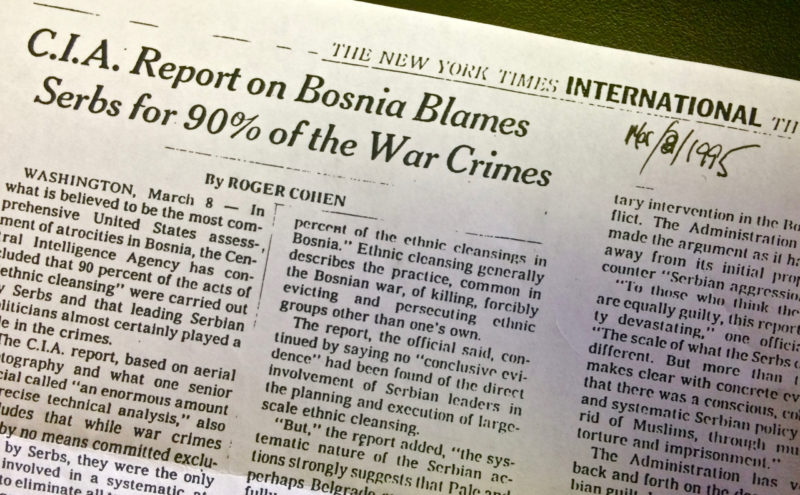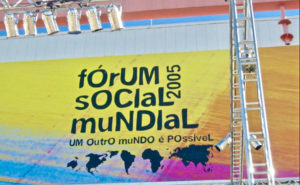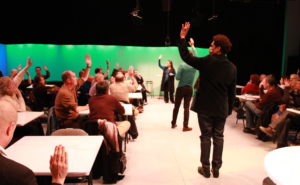
United Nations peacekeeping officials were unwilling to heed requests for support from their own forces stationed within the enclave, thus allowing Bosnian Serb forces to easily overrun it and — without interference from U.N. soldiers — to carry out systematic, mass executions of hundreds, possibly thousands, of civilian men and boys and to terrorize, rape, beat, execute, rob and otherwise abuse civilians being deported from the area.” Human Rights Watch, October, 1995
We knew this was happening – it was being reported every day in the news worldwide. Regardless of the Swiftian argument as to whether it was to be ‘recognized’ as ‘genocide,’ in Srebrenica, for ten days in July last year, Serbs were exterminating mass numbers of Muslim men and boys. How do we co-exist with this knowledge?
For The Foundry’s first Dialogue, we invited five people involved variously with the situation in Bosnia, to help us better understand what was going on, what wasn’t and what needs to be now. We used three contemporaneous news articles as a means to parse how the situation was being reported and what else we ought to know.
March 17, 1996: At the loft of a friend of The Foundry
Guest Speakers
Karmen Jelincik & Mandy Jacobson, Filmmakers
Currently making a full-length documentary (Calling The Ghosts) about rape, war and women in Bosnia-Herzogovinia
Scott Johnson, SUNY Buffalo School of Law Human Rights Center
Currently working with the UN International Criminal Tribunal for the Former Yugoslavia as the first step towards building a permanent international criminal court of justice (ICC)
Paula Gordon, Production Manager, The Wooster Group
Has been back & forth to Bosnia several times (shortly to move there permanently)
Eileen Weiss, Jews Against Genocide/NY Committee to Save Bosnia
Current campaign to urge Clinton to lift the US arms embargo against Bosnia (that he vetoed in Aug ’95)
The Articles
And the world has done nothing — nothing effective’ — to stop them… The world’s political leaders and diplomats still talk, but they hardly seem to care. Even the informed Western public’s attention has drifted away.”











